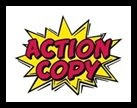Ordinary consumers with no conflicts of interest supposedly author reviews, but sometimes companies plant glowing fake reviews among legitimate ones. It can be hard to spot the fakes, especially when casually browsing. But certain characteristics can help identify them, and writing styles offer a number of clues:
- Too effusive – "This coffee maker is the best thing ever invented! I would buy it again and again, and I recommend it to everyone alive!"
- Too specific – "Acme's aerodynamic coffee drip mechanism creates the ideal brewing environment for beans prepared with Acme's 345G coffee grinding system."
- Horrible, irrelevant writing (so five stars can be given) – "i luv coffee & this coffee maker makes the best coffeee in da wurld LOL!!!!"
- Marketing-speak – "This coffee maker is GENIUS! No more moving, disconnecting cables, and spilling out water and coffee. I love waking up in the morning and finding a perfectly hot cup of coffee thanks to the programmable timer. I RECOMMEND THIS LOVELY PRODUCT!"
With care, the writing could be finessed to avoid detection. On the other the hand, companies could redirect efforts into running marketing campaigns that don't involve deception.

.gif)




